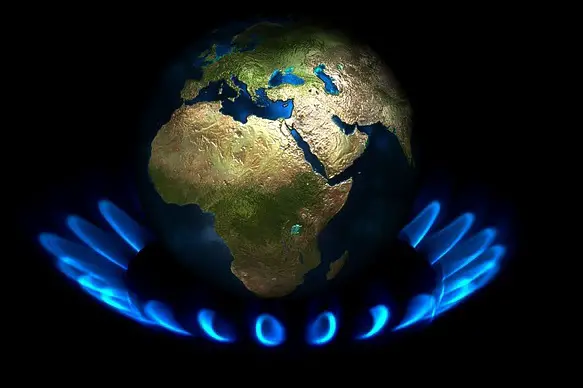Shell Plc has inked a deal with Qatar for the purchase of liquified natural gas for delivery to the Netherlands for 27 years – the second major contract for the Gulf nation for shipment of the super-cooled fuel to Europe beyond 2050, despite the push in the bloc to transition to greener forms of energy.
QatarEnergy will begin in 2026 to deliver up to 3.5 million tons of LNG per year to the Gate import terminal in Rotterdam for 27 years under two contracts, according to a statement by the Middle Eastern country released on Wednesday. The news of the deal came one week after news broke of the producer signing a similar deal with France’s TotalEnergies SE, and with word that more such deals may be revealed in the future.
As the Eurozone prepares for a second winter without the benefit of copious, cheap Russian pipeline gas supplies, European oil majors have been looking to sign some of the biggest and longest LNG supply deals in history. Analysts note the contract comes as the Netherlands is looking to meet a target of zero out emissions by 2050.
Previously, a desire to reach the bloc’s pollution reduction goals has kept European energy firms from signing the decade-long contracts preferred by Qatari producers. The shift demonstrates how the changing geopolitical situation produced by the Russian invasion of Ukraine, which upended energy markets and led to European nations being forced to prioritize energy security over environmental goals, has made the decade-long contracts more attractive.
Saad Sherida Al-Kaabi, Qatar’s energy minister, said, “These agreements reaffirm Qatar’s commitment to help meeting Europe’s energy demands and bolstering its energy security.” The Arab nation, which competes with the US and Australia for the role of top LNG supplier, tends to offer little or no destination flexibility, as it prefers to link its contracts to oil.
Following its investment of tens of billions of dollars to increase gas output by 64% by 2027, Qatar is now rushing to find customers. Last year, Shell bought a share in the project.
Although the other energy majors who have bought stakes in the two-field expansion, including Exxon Mobil Corp, and Eni SpA, have yet to announce LNG purchase agreements, analysts say they may eventually sign similar deals, as Qatar seeks to move the extra volumes it will be producing.
So far, Qatar has found purchase commitments for roughly 18.8 million tons per year of the additional LNG capacity the expansion is forecasted to produce, including the new Shell contract. However analysts note that is still only about 40% of the extra volumes the expansion is expected to produce.
The North Field East expansion is expected to produce an additional 32 million tons per year, while the second extension, dubbed North Field South, is expected to bring an additional 16 million tons per year. By comparison, roughly 372 million tons of LNG was delivered in 2021.

